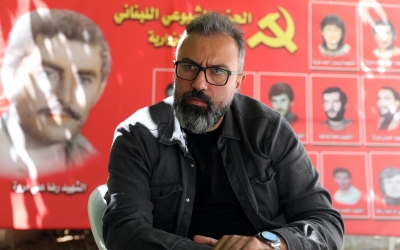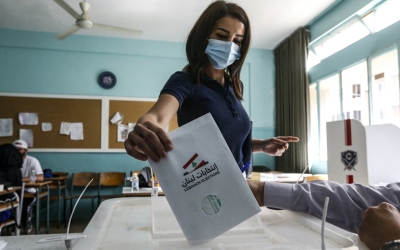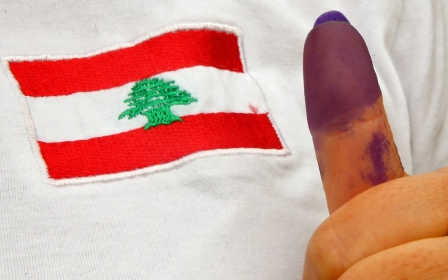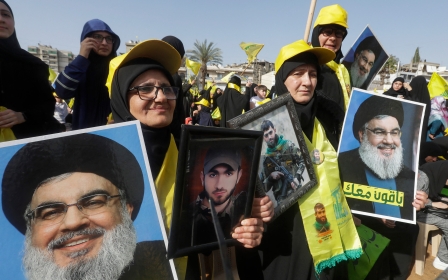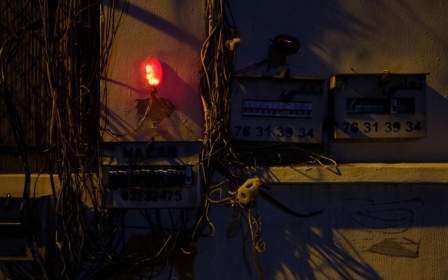Lebanon elections: Who are the major winners and losers?
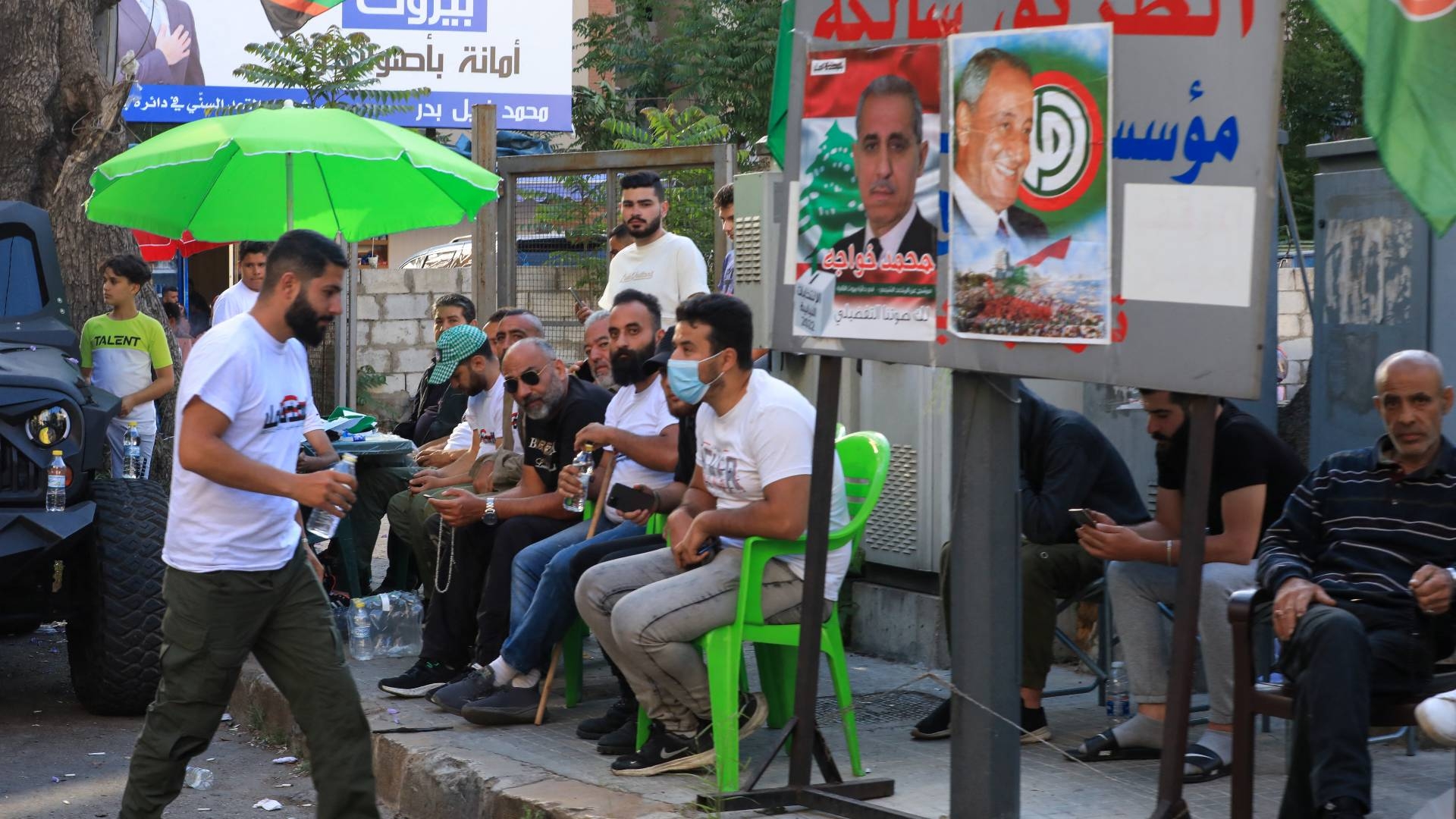
Lebanon's first elections since the country was devastated by its worst-ever economic crisis have unseated household names in Lebanese politics, shifted majority blocs, and yielded a surprising breakthrough for independents.
Middle East Eye takes a look at some of the elections' most notable winners and losers.
Hezbollah-Amal's prominent allies
While Hezbollah and their Amal Movement ally retained their dominance of Shia representation in parliament, some of their longtime Christian, Sunni and Druze allies lost their seats.
The most prominent among the Hezbollah-allied unseated MPs is Talal Arslan. The Druze politician, hailing from one of Lebanon’s oldest political dynasties, was first elected in 1992. The prince of Druze feudalism, known as the emir in Arabic, lost his seat in the Mount Lebanon IV constituency to Mark Daou, a newcomer campaigning on a reform agenda.
Elie Ferzli, the longtime Greek Orthodox deputy speaker of parliament, is also a veteran MP who was defeated in the Bekaa II constituency. He lost to one of the more controversial opposition-backed candidates: Yassin Yassin.
Scepticism surrounds Yassin, a millionaire who purchased some of former prime minister Saad Hariri’s old businesses yet presents himself as anti-establishment.
In the north, Syria-aligned Faisal Karami, the heir of an influential political family in northern Tripoli, failed to get re-elected for a second term in parliament, although his list still won three seats. Karami’s father, Omar, served two terms as premier when Faisal was young.
New Christian majority on the block
A clear victor appears to be the nationalist Christian Lebanese Forces Party (LF), which was founded by Samir Geagea as a militia during the 15-year civil war.
The group overtook the Free Patriotic Movement (FPM), led by President Michel Aoun, as the largest Christian bloc in parliament. A vociferous critic of Iran-backed Hezbollah, the group is backed by Saudi Arabia and has funding from the kingdom.
In celebration, the group erected an enormous billboard thanking its voters while pledging to "get rid of" Hezbollah's highly divisive stock of weapons, although they have yet to explain how they will do so.
Last year, Hezbollah and Amal accused the LF of killing seven of their supporters during a protest linked to the probe into the 2020 port explosion, an accusation that they denied.
In another surprising twist, the LF snatched two seats in the Jezzine district, having had no representation in the constituency in the previous elections, dealing a blow to both the FPM and Amal who failed to reach the electoral threshold.
Sunni vacuum allows opposition entry
Former prime minister Saad Hariri's withdrawal from politics fractured Sunni representation, which was dominated by his Future Movement Party.
The Sunni vote on Sunday was marked by low turnout. Many of Hariri’s supporters abstained from voting in support of their leader, a sign that he retains popularity despite his missteps and decision to leave politics.
Capitalising on the vacuum left by Lebanon's largest Sunni party and its supporters' boycott, opposition candidates were able to snatch three seats in Beirut II, most notably: Melhem Khalaf, the former Beirut Bar Association president; Fouad Makhzoumi, a billionaire MP who retained his seat; and newcomer Ibrahim Mneimneh, an architect who ran in the 2018 elections.
In Tripoli, the largest city in northern Lebanon, Ashraf Rifi, former justice minister and ex-head of the Internal Security Forces, grabbed a seat for the first time. His LF-allied Rescue of a Nation list won a further two seats, which is notable considering that he won none in 2018.
Tripoli, which has a Sunni majority and is the poorest city in Lebanon, recorded the lowest voter turnout nationwide.
In Saida, the largest city in south Lebanon and Hariri's hometown, the two Sunni seats were won by independent candidates running on the same list amid the former premier's absence: newcomer Abdel-Rahman Bizri, a doctor, former mayor of the city and the head of Lebanon's Covid-19 vaccination committee; and incumbent MP Oussama Maarouf Saad.
Independents crack status-quo
In contrast with the 2018 elections, when only one independent candidate won a seat, 13 independents secured representation for the now-defunct anti-establishment protest movement that swept the country in 2019.
As analysts predicted, the fact that independents were split between different lists had a negative impact on the number of seats they gained. But the results have proved better than expected, revealing the first crack in the status quo's armour.
Most notably, two independent candidates managed to penetrate a Hezbollah-Amal dominance in the South III constituency for the first time in three decades: Firas Hamdan and Elias Jrade.
No one believed 'in this part of Lebanon any change could happen'
- Elias Jrade, newly-elected MP
Hamdan, a lawyer who sustained a chest wound during 2020 protests, won the Druze seat in Hasbaya, beating Marwan Kheireddine, chairman of Lebanon's AM Bank.
Kheireddine was one of many that restricted depositors' access to savings during the financial meltdown. Hamdan's win reflected the resentment felt by many in the south regarding the banker’s candidacy.
Jrade, a renowned eye doctor, unseated veteran MP Assaad Hardan of the Syrian Social Nationalist Party for the Greek Orthodox Christian seat in the South III constituency, where independents unified under the Together For Change list.
"No one believed in any time that in this part of Lebanon any change could happen. We are telling them ‘this is the symbol, I gave you the torch and we hope you can continue’," Jrade told Middle East Eye from his home in the village of Ebil al-Saqi, several hours after his win on Monday.
The most prominent independent candidate to suffer defeat was popular former investigative journalist and podcaster Jad Ghosn, who ran on a list led by the opposition party Citizens in a State (MMFD) in Mount Lebanon II. Ghosn lost to LF candidate Razi al-Haj by a mere 88 votes, to the disappointment of many Lebanese who were roused by the secular approach he advocates.
Ghosn scored the second-highest number of Maronite votes in a constituency dominated by traditional parties and prominent political families.
While MMFD was not able to win a seat, many are hoping the 13 independents will now bring fresh blood to a crippled system and set crises-hit Lebanon on the path of systemic reforms.
Middle East Eye delivers independent and unrivalled coverage and analysis of the Middle East, North Africa and beyond. To learn more about republishing this content and the associated fees, please fill out this form. More about MEE can be found here.


